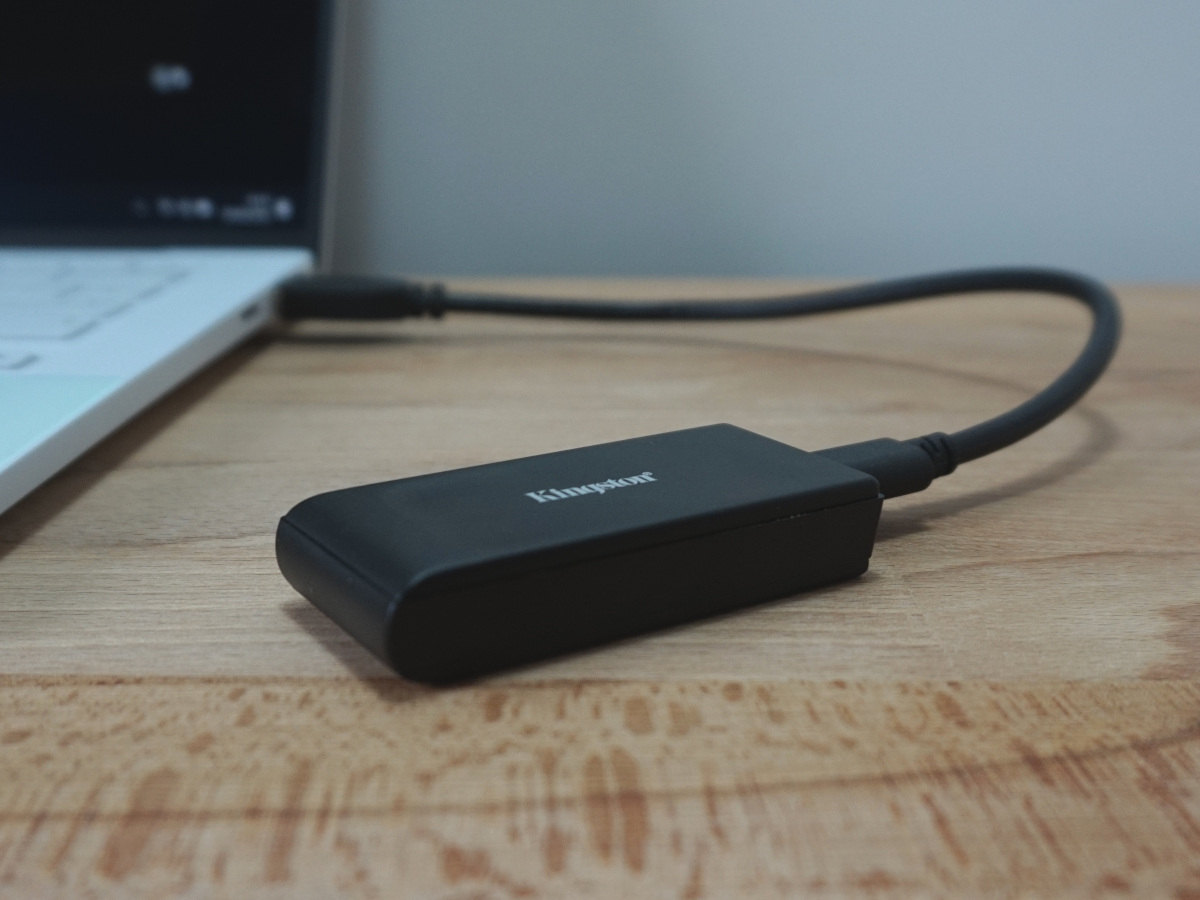
The Kingston XS1000 doesn’t come with much elsein the packaging. The external SSD is shipped in a small cardboard box that thankfully doesn’t use any plastic. Also included is a very short and stiff cable for connecting the USB-C port on the SSD to a USB-A port. The drive doesn’t contain any software or other data right out of the box; it is completely empty and formatted in exFAT at delivery.
Measuring a little shy of 30 cm (11.8 in), the cable should mostly be long enough for use with a laptop. If corresponding USB 3.2 Gen 2 ports are only available on the rear of a computer, the small SSD is usually going to just dangle from the back. Kingston didn’t include any adapter or a second cable for USB-C ports.
The form factor is nice and compact thanks in part to the use of USB-C on the device. However, the cover on our review unit is slightly smaller than the protective aluminium frame. This results in noticeable edges that, amongst other things, have a very high tendency to attract dust and grime.
The XS1000 is a little bit too thick at 13 mm (0.51 in). Especially inside a laptop bag, the SSD is more difficult to stow than thinner competitors, for example the half-as-thick but overall much larger Samsung SSD T7.
Source link
 notebook.co.id informasi dan review notebook laptop tablet dan pc
notebook.co.id informasi dan review notebook laptop tablet dan pc